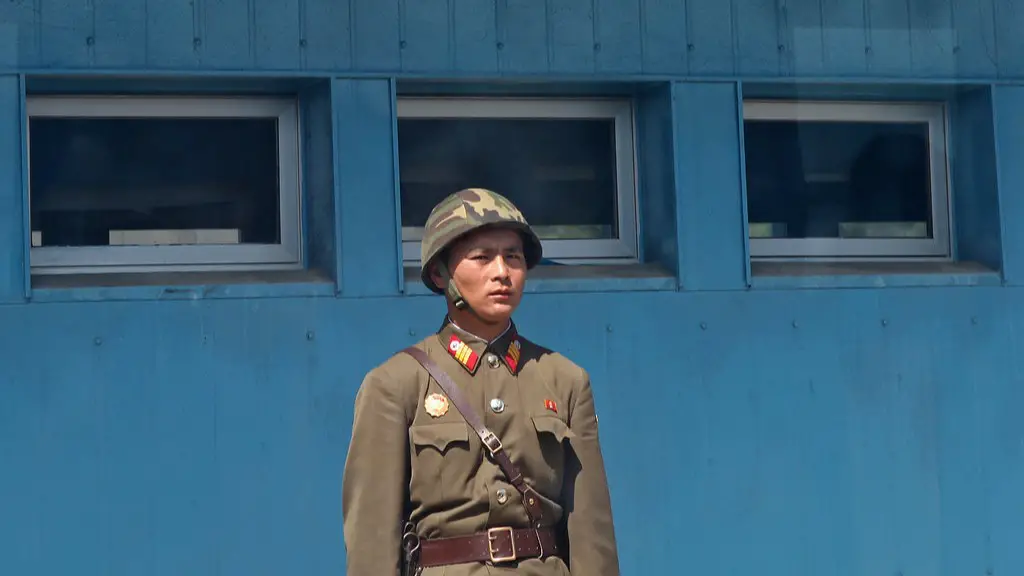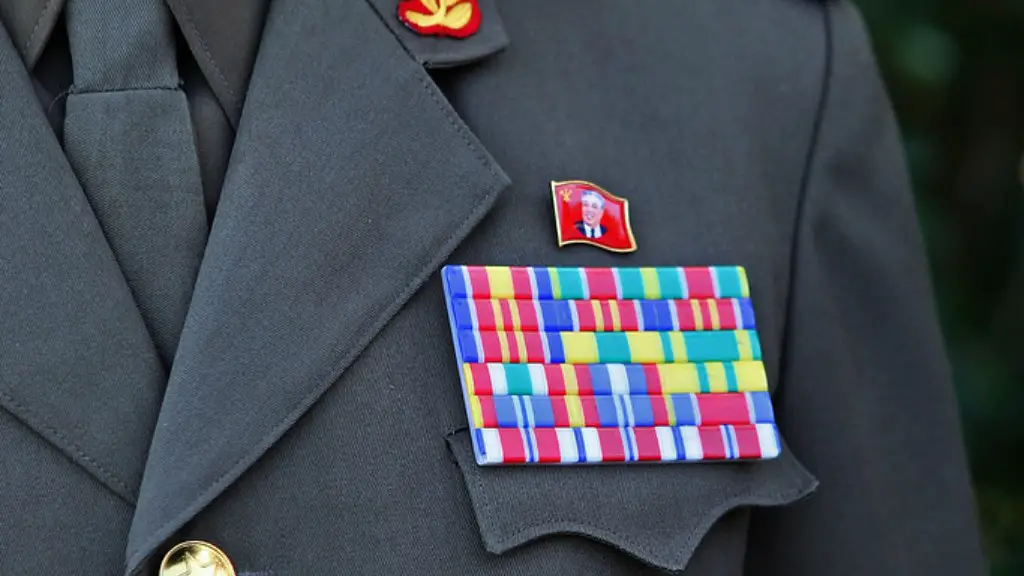Kim Jong-un is the third and current leader of North Korea. He assumed power on December 17, 2011, becoming the youngest head of state in the world. He is a familiar figure in the international news, but many people know very little about him and the nation he leads. As such, it can be difficult to contextualize his decisions and understand the full gravity of their implications.
The official biography of Kim Jong-un claims that he was born on January 8, 1984, and was educated in Switzerland during his early years. Reports from his teachers suggest that he was an average student and mainly focused on sports and basketball. He was appointed to the Korean People’s Army in the year 2010, although his previous military experience is unknown. Kim became the Supreme Leader of North Korea after the sudden death of his father, Kim Jong-il, in 2011.
Kim Jong-un explicitly follows his father’s policy of establishing himself as the nation’s absolute ruler. He was anointed by the National Defense Commission as “supreme leader” and proclaimed head of the Workers’ Party of Korea and the military. Kim Jong-un is the supreme leader of all of North Korea’s party, military, and government organizations. His policies have been both praised and criticized by those outside and inside the country. He has taken steps to engage with the international community, however, his human rights record remains questionable.
Although the public rarely sees any opposition to Kim Jong-un, there is still undercurrent civil unrest caused by his abuses of power. Under Kim’s rule, North Korea has continued to severely restrict political and economic freedoms, leading to allegations of human rights violations. There have also been reports of public executions to discourage any dissenting opinions.
In geopolitics, Kim Jong-un has the distinction of challenging some of the most powerful nations in the world – particularly the US. He has vowed to publish nuclear weapons and to build up the military strength of North Korea. These threats have only caused tensions to increase in the Korean Peninsula.
Kim Jong-un has also sought closer relations with other nations in the region such as China, Japan and Russia. His recent diplomatic outreach to the US has been seen as a positive step for North Korean relations. His leadership has been observed to a certain extent and foreign exchanges have increased in the country.
Internally, Kim’s domestic initiatives have focused on developing North Korea’s infrastructure, such as public transportation and high-speed internet access. His High Speed Rail project set the ambitious goal of connecting all of North Korea’s major cities, though the project has since stalled due to US-led sanctions.
Political Environment in North Korea
North Korea is a single-party state with little space for political opposition. Kim Jong-un is the leader of both the Korean Workers’ Party and the ruling party in North Korea. The ruling party is responsible for carrying out the decisions of the government, including implementing economic plans and maintaining order in the state. The ruling party has an extensive network of control in place to suppress dissent and ensure compliance with the government’s plans.
Political dissidents and journalists who criticize the government or report on events in the country face harsh punishment. Reports suggest that the government operates a system of political prison camps, housing an estimated 80,000 to 120,000 political prisoners. Rights groups have accused the government of widespread human rights violations, including torture, political imprisonment, and summary executions.
The media in North Korea is also tightly controlled by the government. It is illegal to access foreign media and the internet is heavily regulated and monitored. Access to the internet is limited to a select group of government officials and members of the ruling elite. As such, North Koreans have limited access to information and news about the outside world.
Socio-Economic Situation of North Korea
North Korea has a closed economy, largely isolated from the rest of the world, and is heavily dependent on its own resources. The economy of the country is centrally planned and has been stagnant in recent years. The International Monetary Fund (IMF) estimates that North Korea’s GDP, which was estimated at 33.3 billion USD in 2013, is expected to shrink to 30.9 billion USD by 2020.
This economic decline is due to the country’s poor infrastructure, limited access to trade, poor governance, and economic sanctions put in place by the international community. As a result of these sanctions, the country suffers from food shortages and a deteriorating public healthcare system. In addition, the average North Korean earns only a fraction of what an average South Korean earns.
In spite of these challenges, the government has developed a unique “self-reliant” state philosophy, also known as Juche. This has been used as a political ideology to promote self-sufficiency and national pride. This ideology is also used to justify the government’s autocratic rule over the country.
Human Rights Violations in North Korea
The human rights situation in North Korea remains poor, with widespread violations committed by the government. These violations include arbitrary detention, torture, public executions, and other forms of cruel punishment.
The government also restricts religious freedom, suppresses freedom of speech, and controls access to information. Additionally, the government tightly restricts access to the internet and foreign media, which limits the flow of outside information into the country. The government also imposes travel restrictions on its citizens, preventing them from traveling abroad without permission.
North Korean refugees often face immense difficulties in escaping the country and seeking asylum in other countries. Those who are caught attempting to escape are often repatriated back to North Korea after enduring torture and punishment. North Koreans have very few avenues for recourse and often have to depend on international organizations for help.
Relations Between North Korea and the US
North Korea and the US are embroiled in a long-standing dispute over Pyongyang’s nuclear weapons program and the US’ military presence in South Korea. The US has imposed several rounds of economic sanctions against North Korea in a bid to pressure Pyongyang to denuclearize.
The relations between the US and North Korea had been strained for years, but have recently begun to thaw. Following three summits between President Donald Trump and Kim Jong-un, the two countries have committed to working towards peace and stability on the Korean Peninsula.
The two leaders have also committed to “complete denuclearization of the Korean Peninsula” and to strengthen their bilateral relations. However, there has been very little progress in denuclearization talks and recent negotiations appear to have stalled.
North Korea-China Relations
North Korea’s relationship with China is complex and has changed multiple times over the decades. China is currently North Korea’s closest ally and provides the country with financial, diplomatic, and military support. China has also emerged as a key mediator in negotiations between North Korea and the US.
China has sought to encourage North Korea to moderate its rhetoric and pursue a more moderate policy towards other nations. Chinese President Xi Jinping has met with Kim Jong-un on several occasions and has been a vocal supporter of the North Korean leader.
China has also been critical of US policies towards North Korea, particularly the sanctions regime, which it believes has failed to produce any results. China has called for the US to remove its military presence from the Korean peninsula and for both sides to work towards a diplomatic solution.
Conclusion
Kim Jong-un is the young leader of North Korea and holds an absolute power over the country. He has taken steps to engage with the international community, however, his human rights record remains questionable. His policies have led to increased tensions in the Korean Peninsula and the US has imposed economic sanctions on North Korea in an effort to stop the proliferation of nuclear weapons. Kim has also sought closer relations with other nations in the region and has taken steps to develop the infrastructure of North Korea. However, the country faces widespread human rights violations, political repression, and economic hardships.





